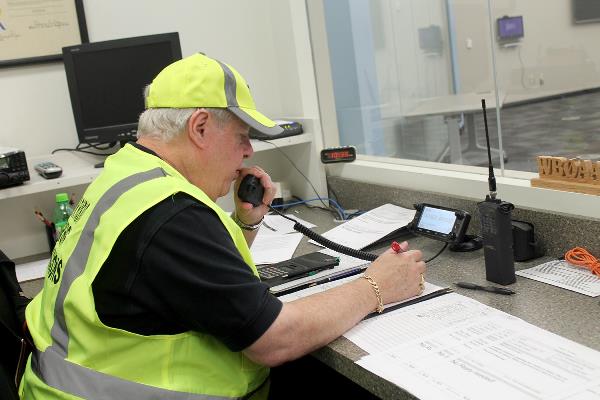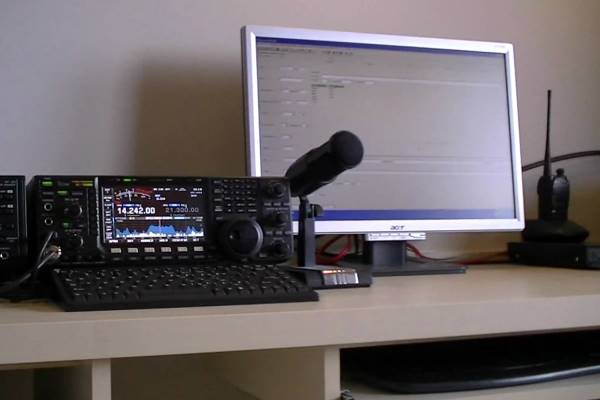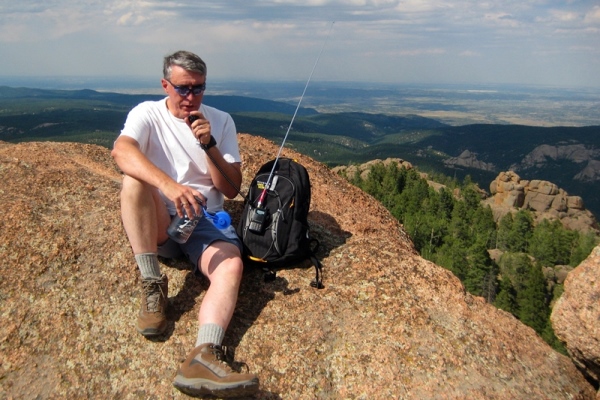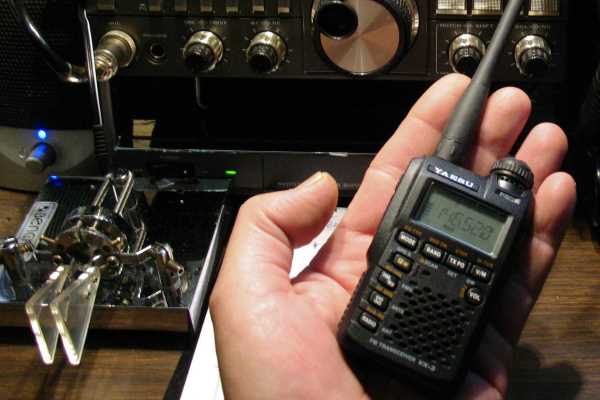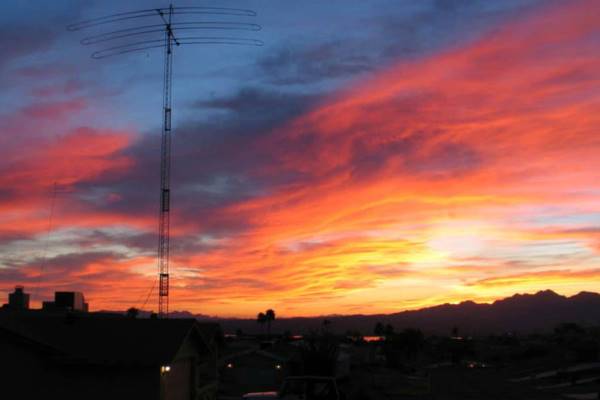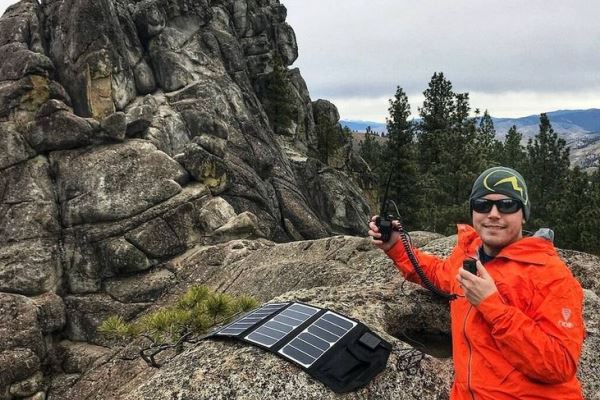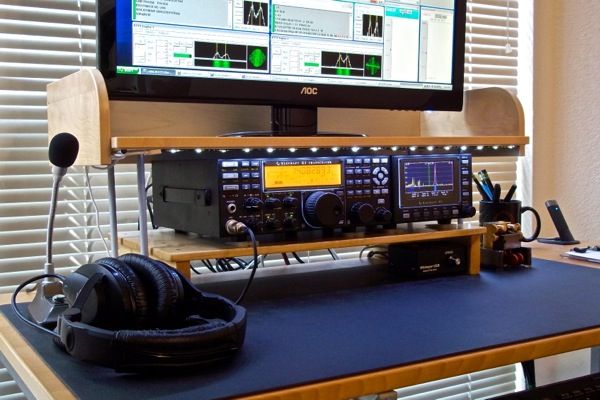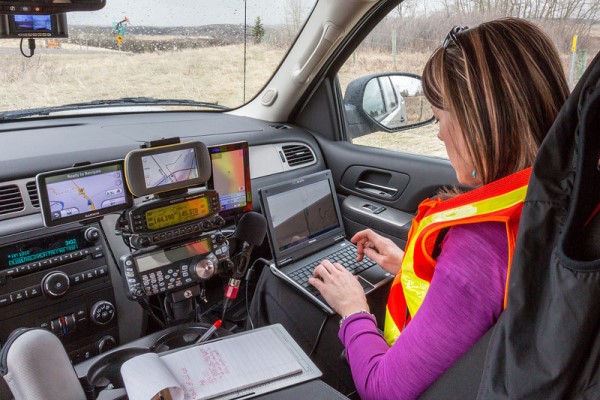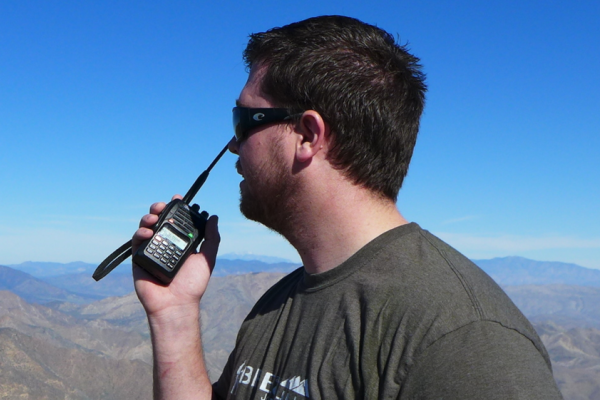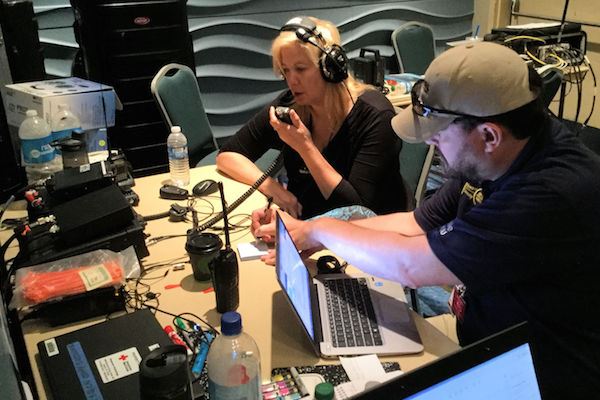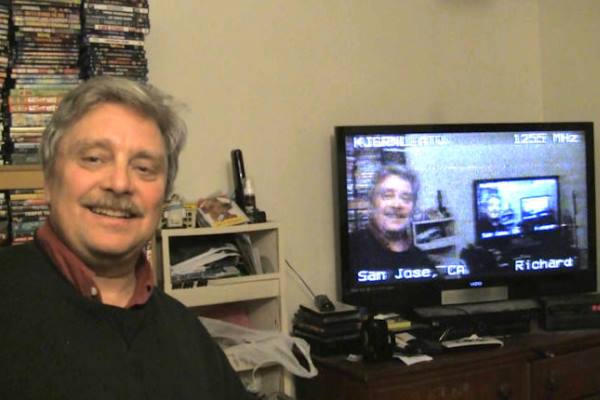Ham Radio Information Page by N6JLG (Jim)

What is Ham Radio?
Amateur Radio (ham radio) is a popular hobby and service that brings people, electronics and communication together.
People use ham radio to talk across town, around the world, or even into space, all without the Internet or cell phones. It's fun, social, educational, and can be a lifeline during times of need.
Although Amateur Radio operators get involved for many reasons, we all have in common a basic knowledge of radio technology and operating principles, and pass an examination for the FCC license to operate on radio frequencies known as the "Amateur Bands." These bands are radio frequencies allocated by the Federal Communications Commission (FCC) for use by ham radio operators.
There are many facets to Ham radio. It ranges from small hand-held two-way radios that look like walkie talkies to large complicated desk or base radios. There are repeaters on mountain tops and orbiting satellites as well. Some amateur radio systems include two-way television communications. The world of amateur radio is large and diverse.
Being a licensed ham, there are over 100 ways you can communicate. The simplest way is to listen and to talk.

Why Ham Radio?
Using a Ham radio is fun. There is so much you can do and so many people you can meet. Communicate across town or across the globe.
Ham radio can be very simple. It is just radio to radio direct communication with only the atmosphere in between. While there are three levels of license, most people just get the first level. Often we use a hand-held radio. You can get both your license and a radio that looks like a walkie-talkie for under $50. In fact, there are smart phone apps that you can use instead of buying a radio. However, these apps will not work in an emergency so buying a radio really is better.
There is so many ways you can use Ham radio. Talking is the easiest way, but you can also use it for two way television communication. That's like Facetime™ without using the cell towers or the Internet. If you connect a laptop or a computer to your radio there are dozens of ways to send and receive information.
Some dedicated hams still use Morse Code. Learning and using Morse Code is no longer required, there are many advantages to knowing how.
One more thing; using a ham radio is free. Once you have your equipment, there should be no other payments. Give it electricity and use it all you want. Even renewing your license should be free.
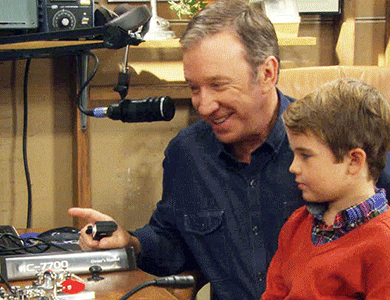
Who Else is a Ham?
There are many famous people that held a ham license and had a call sign. Click the button to see a list.
Here are a famous people that are or were hams:
- Tim Allen - TV Personality
- Yuri Gagarin - First Cosmonaut
- Garry Shandling - TV Personality
- Tony Dolby – his brother invented Dolby Noise Reduction System
- Jim Croce - Singer/Songwriter
- Juan Carlos - King of Spain
- Marlon Brando - Actor
- Priscilla Presley - Actress (wife of Elvis)
- Cardinal Roger Mahony - Cleric
- Burl Ives - American actor, writer and folk music singer
- Joe Walsh - Guitarist/Singer/Songwriter, Eagles
- Percy L. Spencer - Inventor of the Microwave Oven
- Mickey Schulhof - Heads SONY US
- Walter Cronkite - TV Journalist
- John Sculley - former CEO of Apple Computer
- George Pataki - Governor of New York 1994-
- Chet Atkins - Singer/Songwriter/Guitarist
- Ronnie Milsap - Singer/Songwriter
- David French - TV Journalist
- Arthur Godfrey - TV personality
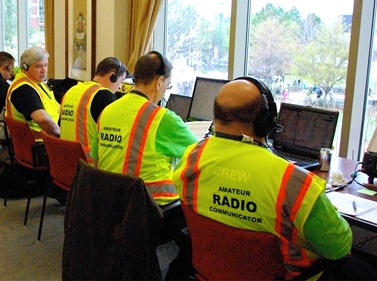
Emergency Communication
In an emergency, ham operators are in high demand. When all other means of communications fail, ham radio gets through.
Amateur radio operators played a substantial role in restoring vital communications links in the wake of 9/11, hurricanes, tornadoes and other major disasters that have affected the United States. They assist in directing first responders to victims, providing real-time situational updates from the disaster scene to emergency management agencies, and offering victims a way to contact their families and friends when normal communications channels have failed.
Cell phones and the Internet will stop working in a large disaster. If it's big enough, even commercial TV and radio stations will stop broadcasting. Getting information in and out of a disaster area is crucial to getting appropriate help to the proper places. Ham operators become part of the solution instead of part of the problem.
As a licensed ham, you can help in a big disaster. In an emergency, ham operators are in high demand. Other volunteers may be searching for the wounded and dead people, dodging fires and weakened buildings. The ham operators will be in a tent or secure building passing along information. Which of these tasks would you rather do?
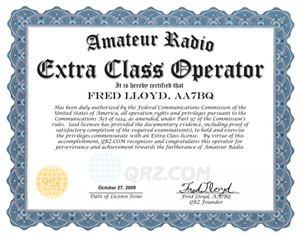
How Do I Get a License?
You must pass the FCC approved test to get a license grant. The first level test has 35 multiple choice questions and you can miss up to 9 and still pass.
You need to study the material to pass this test. There are many ways to learn what you need to know to pass. There are online study helps, books, smart-phone apps, and classes. If you can find an experienced ham that is willing to help, we would call that person an "Elmer."
The other two levels of license are General and Amateur Extra. The test for General is also 35 questions and passing this test really improves your "operating privileges" which means you can use many more frequencies compared to a Technician license holder. The test for Amateur Extra is 50 questions with more difficult questions but getting this license worth the effort.
There is generally a fee to take the test. Most groups are with the ARRL and charge $15. The W5YI test groups charge $14. I generally use the Greater Los Angeles Amateur Radio Group which charges $5 for the test. These are just three of the fourteen Volunteer Examiner Coordinating groups acknoledged by the FCC to adminster the tests.
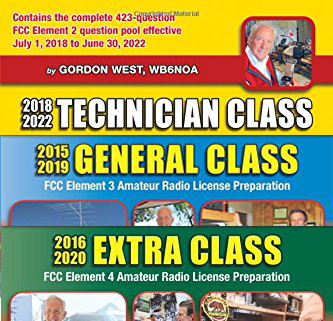
Levels of License
There are three levels of license to become an Amateur Radio Operator; Technician (entry level), General, and Amateur Extra.
Everyone must pass the Technician test before they can transmit on the ham frequencies. When you pass this first level test, you could take the next level too. If you pass both levels you could take the third and final test. This would take extreme knowledge or heavy studying to do. Most people just take one test at a time.
The technician level gives you privileges to the Very High Frequency (VHF) and Ultra High Frequency (UHF) of the amateur bands. These frequencies basically travel in a straight line and do not reflect back down from the atmosphere. So this level of license allows you to transmit locally, like from one city to another. You can use a repeater or the Internet to transmit much further.
The General level gives you privileges to everything a Technician can do plus most of the High Frequency (HF) amateur bands. These frequencies can reflect back down from the atmosphere allowing worldwide communications. This level of ham can also be a Volunteer Examiner (VE) for the Technician level test takers.
The Amateur Extra (or just Extra) level gives you privileges to everything an amateur radio operator can do. You can transmit on all HF, VHF, and UHF frequencies. You can also be a VE for all levels of testing.
We refer to groups of frequencies as bands which are designated by the length of the radio wave. The 2 meter band seems to be very popular.
In California there are currently almost 18,000 hams with 61% Technicians, 19% Generals, and 15% Extras. Nationwide there are over 750,000 hams with 51% Technicians, 23% Generals, and 19½% Extras. In both counts there are 5% or 6% hams with older levels of license which accounts for the missing ham licenses.
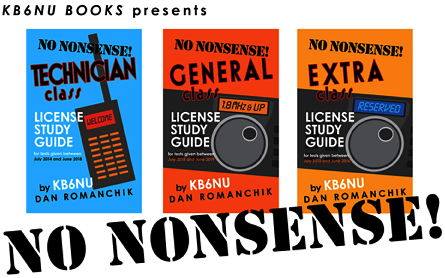
Study Material
The questions on the test are not difficult and they are publically posted with both the right and wrong answers. However, many of the concepts are new to most people so you do need to study if you want to pass the test.
There are many sources of study material. My favorite is the study guide from W5YI (Gordon West). His book is organized by topic and includes illustrations and explanations that really help. This book is about $27 and is well worth it.
The American Radio Relay League offers a more comprehensive book to help you learn about the test questions. In fact, when you are done reading their books you would know more than I do about ham radio. Most people don't want to go through 288 pages just to pass a test though, but this really is the best book. Not the book that I recommend but this one is the best. It is bigger and more detailed but still under $30.
There are also free guides available online. Sometimes you get what you pay for but how can you beat free?
Each level of test questions change every four years. The Technician questions started new on July 1 2018 and will be in effect until June 30 2022. The current General questions are from July 1 2015 to June 30 2019 and the current Amateur Extra questions are from July 1 2016 to June 30 2020.
Be sure you are studying the right version of the questions. I had someone try to pass the General test and failed three different times. We later found out he was still studying the old book even after the questions had changed. Libraries and thrift stores are full of expired books. Check the dates before you spend any time studying the questions inside.
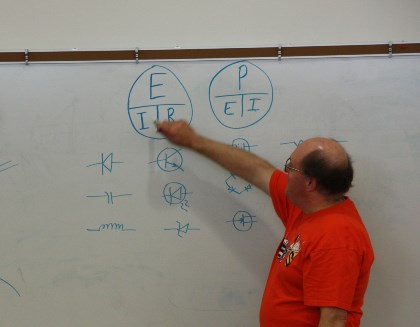
Licensing Classes
I suggest attending a class to help you study for the test. Some classes are free while others can seem quite expensive.
Most ham clubs offer free classes. I prefer the weekly classes but there are also weekend crash courses. Either way you have someone in front of you helping with questions. Clearing up your understanding can make the test easier to pass.
If you are close enough to the 92373 ZIP code, you can join one of my free classes. Better yet, get a group together and invite me to teach all of you at your location. Six weeks of 2½ hour classes followed by a test on the seventh week and you should all become licensed amateur radio operators. We can even have follow up classes on how to use your new license and equipment.
Ask around. You may be surprised how many people you know are already Hams. If you can't find any among your friends, perhaps you should organize a class and get everyone licensed!
Enroll Here in the September classes
Hams in Action
When you see someone driving along with more than a regular car antenna, they are most likely a ham. Some people backpack to mountain tops and communicate from there. Others sit at home and talk with anyone that will listen.
Hams (amateur radio operators) communicate in many ways. Some volunteer to help with big events, such as helping at marathons. A few study the atmosphere and transmit their own weather reports.
Here are a few activities for hams:
- Help with communications at large events
- Contests
- Connecting a GPS to track a convoy
- Hidden transmitter hunts (called Ham Fox Hunting but no animals are involved)
- Ham radio nets
- Participate in emergency exercises
- Volunteering to teach ham licensing classes
- Proctor tests to help other people get their ham license
- Installing, maintaining, and using mountaintop repeaters
Contests are great! On the last full weekend of June is the ARRL Field Day which is like a contest. Once a year on Field Day we bring our equipment out away from power and normal antennas. Everyone is out in the field operating their radios. They try to contact as many other hams as they can in just 30 hours.

Hams in Hollywood
There have been many amateur radio operators depicted in movies and on TV. We have several listed below.
First we list some TV appearances.
- Tim Allen as Mike Baxter on Last Man Standing
- Herman Munster
- Alf
I am sure there are many more. Send me a note if you know of some. Now on to the list of movies.
- Contact - (Jena Malone and Jodie Foster)
- Frequency - (Denis Quaid)
- Phenomenon - (John Travolta)
- Mr. Poppers Penguins - (Jim Carrey)
- Super 8 - (Joel Courtney)
- Independence Day - (Will Smith)
- Star Trek: Beyond - (Chris Pine)
- High Frequency - (Vincent Spano)
- Testament - (Jane Alexander)
- The Glass Bottom Boat - (Doris Day)
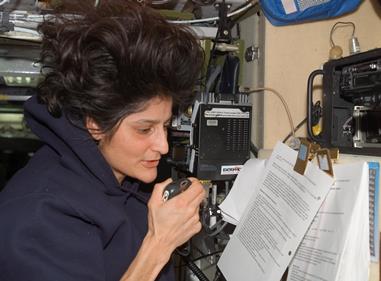
Hams in Space
There is an amateur radio operator on the International Space Station. There are also amateur radio satellites. But it doesn't end there.
Not only are some astronauts licensed hams, but many hams send their transmissions into space intending for them to come back to earth.
The signals going into space include:
- EME, that's Earth-Moon-Earth. They transmit at the moon and reflect their signals to come back down to another ham.
- Meteor Scatter. The transmit at the meteor shower to reflect it back.
- Auroral reflection. Hams bounce their signal off many unusual things.
- Satellites. There are over 18 amateur radio satellites orbiting the earth.
A part of amateur radio operating can be conducting radio experiments. Obviously the people who do any of this list are experimenting.
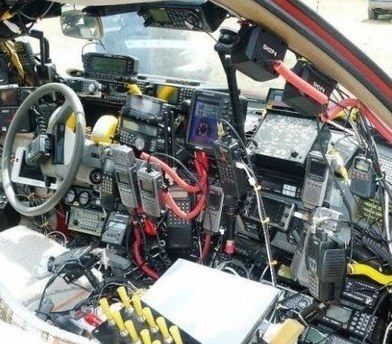
So What's the Downside?
There are two problems with being an amateur radio operator: money and pride. This hobby can take as much money as you offer it, and you can look like a geek to your friends.
Some people believe HAM stands for Had A lot of Money. While you can get a license and a transciever (transmitter and receiver in one unit) for under $50, some people don't stop there. A good radio setup which can communicate with the world can cost as little as $1,400. This includes the transceiver, the power supply, the antenna, the coax, and a small pole for the antenna. But there are some transceivers that alone cost over $22,000.
I have heard people say that being a ham is the ultimate geek. Well, I guess I'm okay with that but my wife may not be. Many hams don't go public. They simply use their radios at home and no one ever knows they have a great hobby.
If you can keep a good budget about your ham spending, and you don't mind if some of your friends think you are weird, then maybe you should become an amateur radio operator. I love this hobby and would also like to help you join us if you care to.
One more thing, ham radio is free. Once you have your equipment, there should be no other payments. Give it electricity and use it all you want. Even renewing your license is free.
